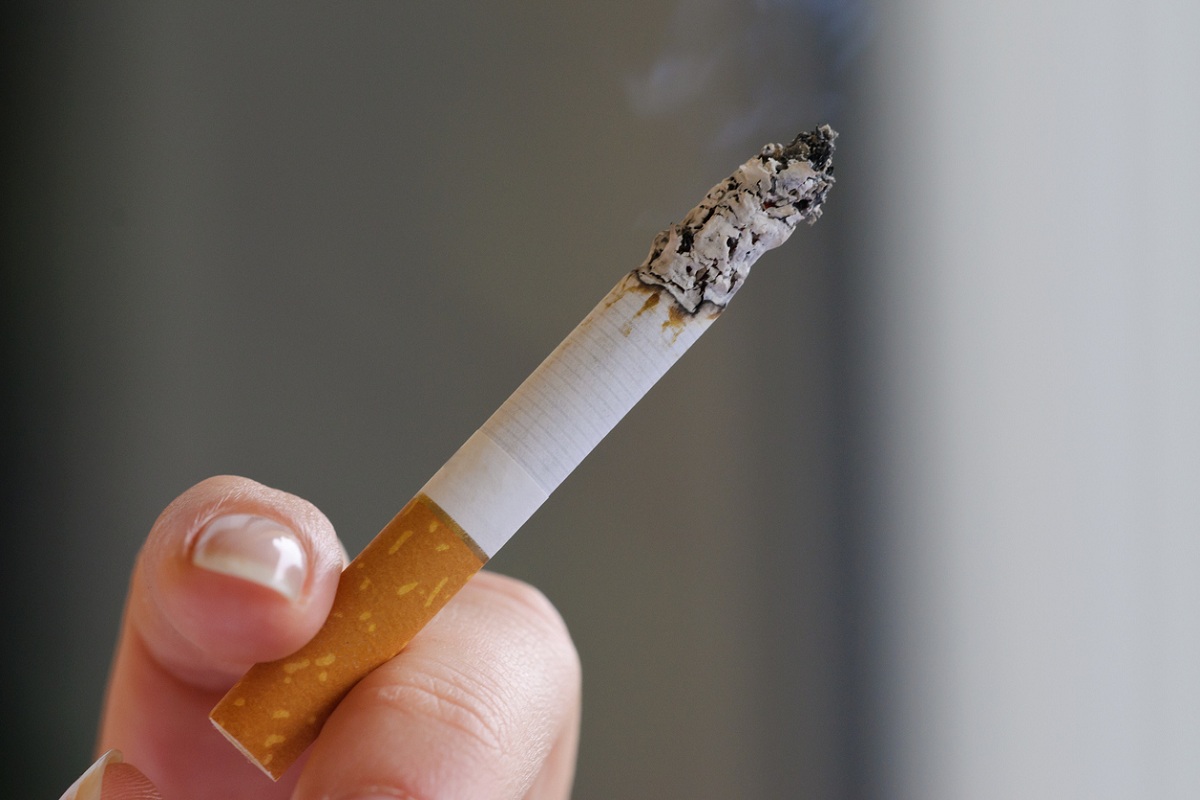Delhi Police unearth syndicate behind illegal trade in high-end cigarette brands
With the arrest of four accused, the Delhi Police claimed to have unearthed a syndicate involved in the illegal trade of international cigarette brands.
It is known that cigarette smoke contains polycyclic aromatic hydrocarbons (PAHs). These can bind to and activate aryl hydrocarbon receptors (AHRs).

(Representational Image; Source: iStock)
Researchers have identified two drugs that mimic the effect of chemicals in cigarette smoke and reduce the ability of the SARS-CoV-2 virus, the virus causing Covid-19, to enter cells.
The two drugs — 6-formylindolo(3,2-b)carbazole (FICZ) and omeprazole (OMP) mimic cigarette smoke’s effects to bind to a receptor in mammalian cells that inhibits the production of ACE2 proteins, a process that appears to reduce the ability of the SARS-CoV-2 virus. The findings appear in the journal Scientific Reports.
Advertisement
FICZ is a derivative of the amino acid tryptophan, while OMP is a medication already widely used in the treatment of acid reflux and peptic ulcers.
Advertisement
Something of a paradox exists with respect to smoking cigarettes and Covid-19. Active smoking is associated with increased severity of disease, but at the same time, many reports have suggested lower numbers of Covid cases amongst smokers than amongst non-smokers.
“We must stress the presence of strong evidence showing that smoking increases the severity of Covid-19,” said Keiji Tanimoto of Hiroshima University’s Research Institute for Radiation Biology and Medicine. “But the mechanism we discovered here is a worth further investigation as a potential tool to fight SARS-CoV-2 infections,” Tanimoto added.
It is known that cigarette smoke contains polycyclic aromatic hydrocarbons (PAHs). These can bind to and activate aryl hydrocarbon receptors (AHRs).
The researchers wanted to investigate the effect of drugs that activate AHR on the expression of the genes that control the production of the ACE2 protein — the infamous receptor protein on the surface of many cell types that works like a lock that the SARS-CoV-2 virus is able to pick. After binding the virus to the ACE2 protein, it can then enter and infect the cell.
The scientists found that those cells originating in the oral cavity, lungs, and liver had the highest ACE2 expression. These high-ACE2-expression cells were then subjected to various doses of cigarette smoke extract for 24 hours.
Further, using RNA sequencing analysis, they found that the cigarette smoke extract and these two drugs — all of which act as activators of AHR — are able to suppress the expression of ACE2 in mammalian cells, and by doing so, reduce the ability of the SARS-CoV-2 virus to enter the cell.
Based on the findings in the lab, the team is now proceeding with pre-clinical and clinical trials on the drugs as a novel anti-Covid-19 therapy.
Advertisement